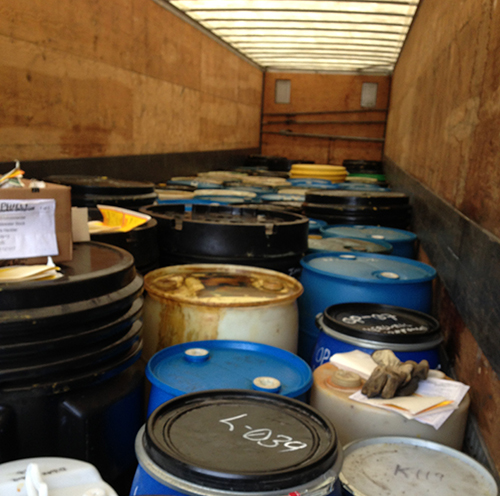Part of DEP’s work looks closely at historical spills, leaks, and contamination left behind by industries and companies that are often long gone. While present day spills are addressed under Pennsylvania’s environmental laws and regulations, past accidents, misdeeds, and mistakes can still pose a threat to Pennsylvanians.
Recognizing the importance of addressing this issue of legacy sites, the Hazardous Sites Cleanup Act (HSCA) was signed into law in 1988 to provide DEP the funding and authority to address hazardous substances and contaminants in the environment. While DEP may not have the resources to address every possible location where contaminants may be present, the HSCA program has conducted nearly 900 actions in communities across Pennsylvania, cleaning up groundwater, capping or removing contaminated soil, and ensuring thousands of people have access to safe drinking water.

One such site is the Hoff VC HSCA Site in Montgomery County, where groundwater remediation techniques have been used to clean up decades-old pollution.
Site Background
In the early 1970s, an oil company used industrial solvents to clean out their oil delivery trucks and allowed the resulting dangerous mixture of chemicals to seep into the ground, flowing into a nearby stream. Like so many other sites, time passed, the company dissolved, the property was sold to a new owner, and the contamination was left behind with a responsible party that was unknown, unable, or unwilling to address it.
In 2011, sampling by the Montgomery County Office of Public Health (MCOPH) found industrial solvents in a private drinking water well, just downhill of the property. As a result, DEP conducted an investigation of the area, sampled dozens of private wells, funded a waterline extension to serve 27 nearby properties, and removed more than 8,000 gallons of hazardous waste and more than 200 tons of contaminated soil.
Groundwater Remediation Pilot Test
With the most immediate threats to human health addressed, DEP shifted focus towards cleaning up the groundwater. This is no easy task as the historical spills contaminated the aquifer with different types of volatile organic compounds, semi-volatile organic compounds, pesticides, and metals.
In order to address the polluted groundwater, DEP needed to find a way to break up the contaminants still underground. One common way to do this is through a process known as “In Situ,” or “in place” remediation. This process involves adding reactive chemicals or agents to the ground that will attack contaminants in groundwater, break them down, and render them harmless. DEP began a pilot of this process in 2019 in the most polluted portion of the site: the area of shallow groundwater where the truck washing occurred.
In November 2020, contractors working for DEP injected a mixture of oxidants and iron to break up the contaminants. The oxidants can quickly break the chemical bonds that hold the contaminant molecules, while the iron breaks up the contaminants slower, but works over a longer period of time. Following the injections, canisters that slowly release chemicals to further break up the contaminants were installed in September 2021.
For more information about ISCO, read A Citizen’s Guide to In Situ Chemical Oxidation.
Injection Well Installation in April 2022
Initially, concentrations of the contaminants decreased by approximately 90% in the area where the injections occurred. When further sampling showed concentrations beginning to return to their previous levels, DEP performed another series of injections and installed several new injection wells to treat a greater area.
Based on the results of the first set of injections the mixture of oxidants was revised to better break up the contaminants, and the amount of the mixture was doubled. The second set of injections were successfully performed in May 2022.
DEP continues to evaluate the effectiveness of the In Situ treatment through on-going monitoring of the groundwater. A detailed report on work will be available in the Summer of 2022 and will be posted on the Hoff VC HSCA Site website.
Want to learn more about DEP’s HSCA program?
DEP’s goal with all HSCA sites is to alleviate threats from releases of hazardous substances and contaminants. Read DEP's recently released 2021 Annual Report for the Hazardous Sites Cleanup program.